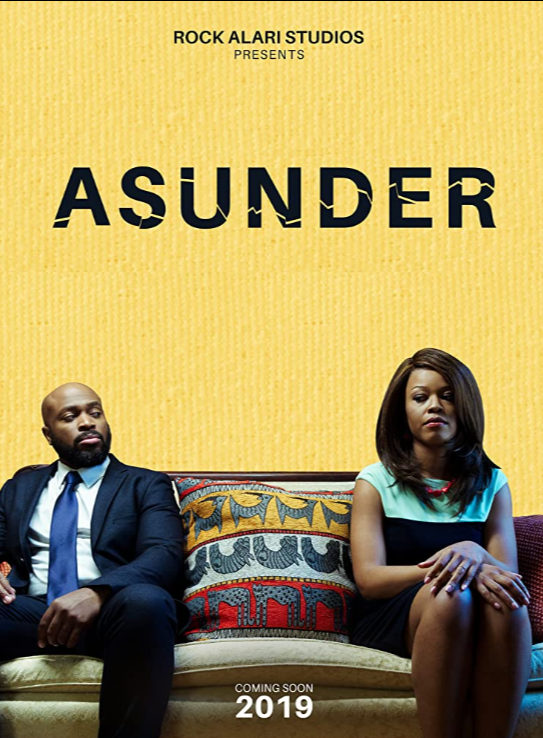Synopsis: Asunder focuses on the life of a successful, prosperous, yet distant married couple who are thrust into the den of conflict and potential divorce after an incident changes their relationship forever.
MOVIE REVIEW: ASUNDER, ONE FLESH DIVIDED
Brandon’s “but I’m a good man, Ruth” speech seemingly encapsulates the heart of this movie set as a modern-day marriage conflict. Asunder, One Flesh Divided is a story of a young couple who fell easily in love during their undergraduate days and married almost afterward.
Alana Barrett-Adkins’s Asunder, One Flesh Divided, is a satisfying watch. The story of this couple is one everyone knows— the flailing union between two people who used to think the world of each other.
It can be hard to tell a familiar story, but Barrett-Adkin pulls this off with grace. What makes Asunder, One Flesh Divided unique, is that it takes a new perspective exploring the whys behind the actions we see.
The movie opens five years into their marriage, and from the start, we can already tell that this isn’t the doe-eyed young lovers who were so head over heels for each other. Asunder, One Flesh Divided, is relatable this way, portraying the story of a lot of marriages that are merely trudging by.
The evident lack of connection between the two lovers is a recurring theme portrayed throughout the movie. For instance, Ruth smashes a plate on the kitchen floor after an argument with her husband, Brandon. Brandon mirrors this action by smashing a mug later on in the movie.
Brandon’s lackadaisical attitude or Ruth’s nagging feels too familiar like a story told often. Is this just another couple bickering, or are there hidden agonies years in the making? This is what Asunder, One Flesh Divided shows us — the backstory of every action, the insecurities that they battle with, and how it affects those around them, even when they try to hide it.
Jackson Black’s arrival on the scene is the enigmatic catalyst that speeds up an already imploding marriage. Still, you might find yourself vaguely unimpressed. Black barely did anything overwhelming except show up at the right time. Or the wrong time, depending on whose story you are telling. Barrett-Adkin plays Ruth, the dutiful wife until she is not. Her acting is enigmatic; we can feel her despair, frustrations, anger, and sorrow.
Another emotion we discover in this movie is seething anger. There’s a lot of vocalization, yes, but you still come away with the feeling that they have left so much unsaid. In the family dinner scene, Bradon’s silence is almost impossible to ignore. You’d find yourself counting the seconds till we can finally get something out of him. Lack of communication is a major relational problem. Asunder, One Flesh Divided reveals this, systematically working it into the plot of the movie.
Resolving the ultimate conflict seems almost impossible until the family and church step in. Barret-Adkin makes the role of the community in a marriage clear. It takes more than two people to make a union work. The Christianity theme is hard to ignore. Values quoted directly from scriptures are espoused in the movie and directly voiced in its scripts. Barret-Adkin wants us to know — marriage makes the couple one flesh, and they should not be put asunder.
As for the production, it was sufficient. I sometimes longed to get a better view of background activities, but I was still able to follow the storyline. Asunder’s sound was clear and direct. It might have been more moving to use music to wind the audience’s emotional key. Still, the few songs in the movie spiced up the general atmosphere.
I particularly enjoyed the ending. At first, it felt anticlimactic until it didn’t. We are left wondering what really did happen? Did they get their happily ever after? We sure hope so!




